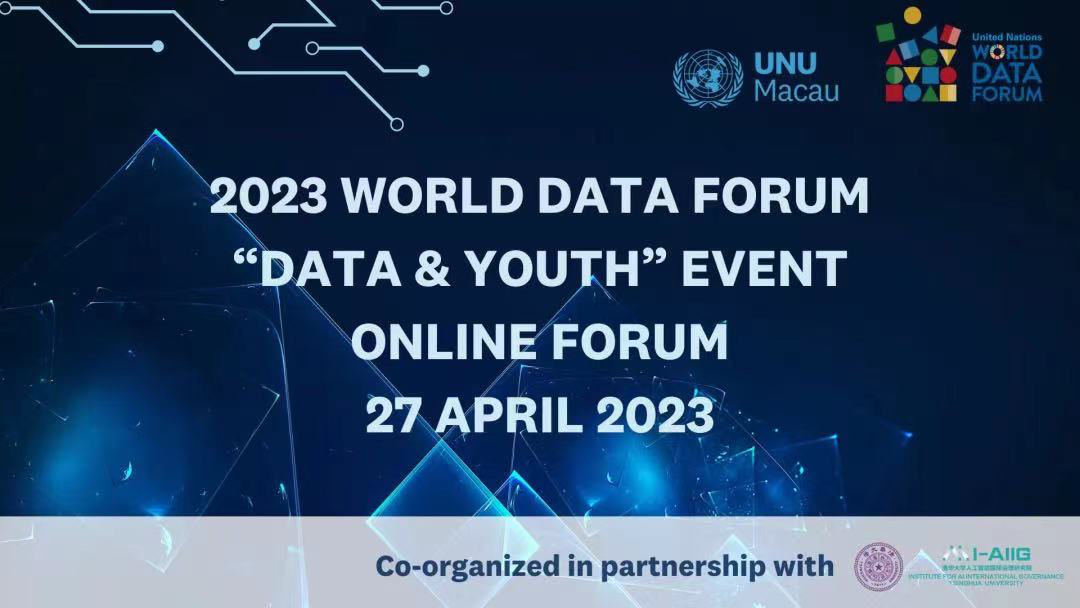On April 27th, the 2023 United Nations World Data Forum “Data & Youth” Event, initiated by the youth of the United Nations University Institute in Macau (UNU Macau) and supported by the Institute for AI International Governance of Tsinghua University (THU I-AIIG), was held online.
Tim Unwin, UNESCO Chair in ICT4D, Emeritus Professor of Geography at Royal Holloway, University of London, pointed out that the younger generation is the main force for developing digital technology. “It is essential to ensure effective dialogue to engage young people from diverse backgrounds and build trust through mutual respect,” he said. Considering the role of science and its value behind, Tim stressed that scientists should be responsible for what they create, especially for harmful unintended consequences. “Although digital technology is usually assumed to be good, its application and related infrastructure construction often cause environmental damage. The security and ethical issues behind the data are another issue that cannot be ignored,” he added.
In the session “Artificial Intelligence Cutting Edge”, TIAN Feng, Dean of the SenseTime Intelligent Industry Research Institute, and YU Yang, Director of International Academic Programs of the Institute for Al International Governance of Tsinghua University, jointly discussed the cutting-edge developments in Al and explore the technical and ethical issues in the AI 2.0 era.
TIAN introduced the digital economy 3.0 in which both AI 2.0 software and embodied intelligence are applied. “The standardized AI production line constructed by the AI 2.0 foundation model represents a transformation of the model from “specialist” to “generalist”,” he said.
Regarding the fact that large gender and racial bias exist in language models, YU explained a degradation mechanism, a causality-detection fine-tuning approach to address model bias. “By making RCT-based self-adjustment of embedding, gender bias can be partially mitigated while avoiding performance degradation,” he said. As AI is not technologically neutral, it has value and can determine whether people have equal and fair opportunities. “We need to teach AI in a way similar to educating kids to learn the correct value, which is the foundation of achieving a better society,” YU emphasized.
HUANG Jingbo, Director of the United Nations University Institute in Macau, delivered the closing remarks of the forum. She highly recognized the value and importance of the topics discussed, advocated young generation to join the research and practice of digital technology for sustainable development, and urged for collaborative efforts to create new ideas and incubate new paths.
